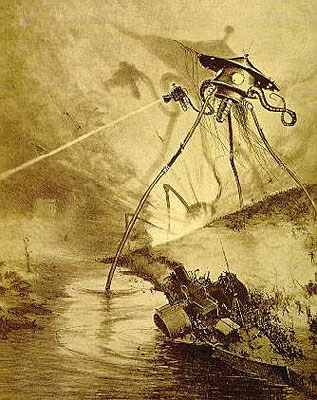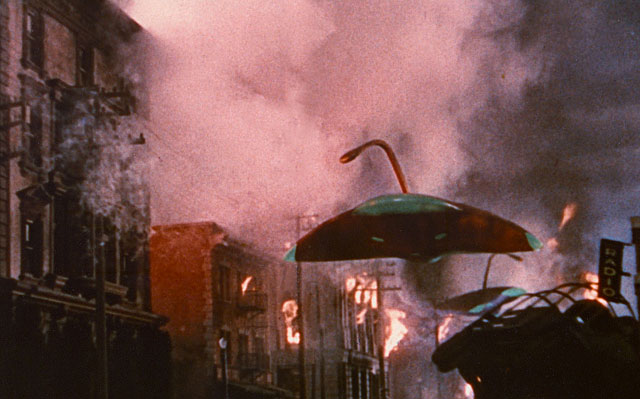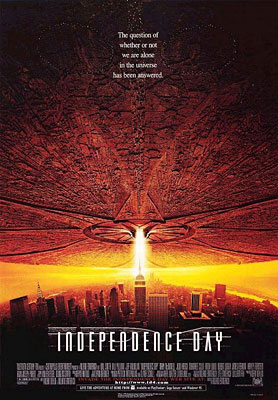Alien Invasion Du Jour
By Bert Ehrmann
March 4, 2011

It might be a familiar idea now, but it wasn't until near the start of the 20th century that the concept of aliens invading the Earth was first created. To be sure, scientist Galileo Galilei had realized in the early 17th century that some of the stars in the sky were different than the others, the planets, and that these planets might in some way be like the Earth but the idea that there might be creatures living on these planets and that these things might one day come here to attack us was an unknown concept. That was until the publication of the book The War of the Worlds in 1898 by H.G. Wells.
In Wells' story, one day strange metallic cylinders begin landing around England. These cylinders contain gigantic war machines from Mars, bent on human destruction and world domination. The Martians are far more technologically advanced than us and in short order the Martians quickly gain the upper hand in the war against humanity and in no time are on the verge of world domination and the extinction of mankind.
In the end, though, the Martians are unexpectedly defeated. Not by something man made but instead by common germs and viruses that are a nuisance to humanity but deadly to the aliens.
Since Wells' original story there's been hundreds, if not thousands, or stories, radio plays, movies and TV episodes that have dealt with alien invasion. And most, if not all, owe a huge debt to the original The War of the Worlds.

One of the first movies about alien invasion was a film version of The War of the Worlds in 1953. In this version, the setting was changed from the U.K. to the U.S. and the alien tripod war machines were replaced with hovering ships but the overall concept of advanced alien technology overwhelming mankind, and the Martians only being stopped when they encounter Earthly germs and viruses remain from the original.
Many episodes of The Twilight Zone (1959) and The Outer Limits, both the original 1963 series and the 1995 revival, featured stories of alien invasion and numerous low-budget b-grade films of the 1950s and 60s did too.
With the release of Close Encounters of the Third Kind in 1977 and later E.T.: The Extraterrestrial in 1982 that both featured nice aliens who'd never dream of hurting anyone let alone invading our planet, alien invasion films fell out of favor with the public. However, TV series like Galactica 1980 (1980), V (1983) and even a War of the Worlds series in 1988 dealt with invading aliens and all met with varying degrees of success.

The alien invasion sub-genera took a huge boost in popularity with the movie Independence Day in 1996. This film was essentially an update to The War of the Worlds story but with minor changes. In Independence Day, the aliens aren't from Mars but someplace else and the virus that defeats the invaders isn't a real one but a computer virus. Independence Day was such a huge hit that it's still the 27th highest grossing movie of all time.
TV series like Dark Skies (1996) and Roswell (1999) and movies like Mars Attacks! (1996) and Battlefield Earth (2000) would all follow Independence Day, but none would find anything like the success of the of that film.
After the events of 9/11, alien invasion movies and all the destruction that they depict fell out of favor. Other than films like Signs in 2002, another War of the Worlds in 2005 and TV series Threshold and Invasion (both 2005) here wasn't much alien invasion themed TV series or movies to choose from.
Lately, though, this has all seemed to change. Already on TV is a new V and series The Event and out March 11 is the film Battle: Los Angeles that once again delves into the original concepts that H.G. Wells developed back at the turn of the 20th century with our military being overwhelmed by a technologically superior invading alien species. Also out later this year is a Steven Spielberg produced post-alien invasion TV series Falling Skies on TNT and the film Cowboys & Aliens about an alien invasion set during the Wild West.
